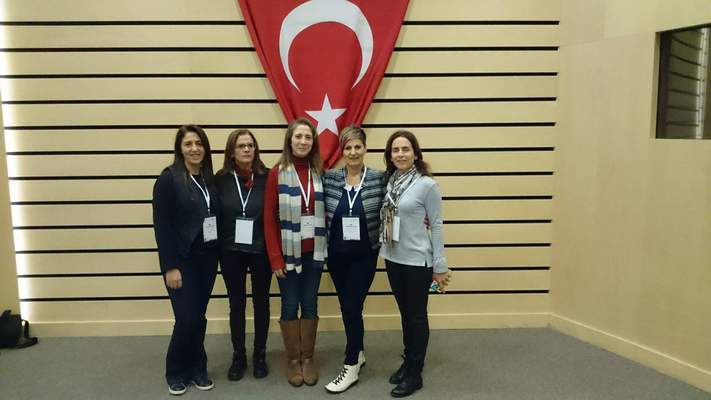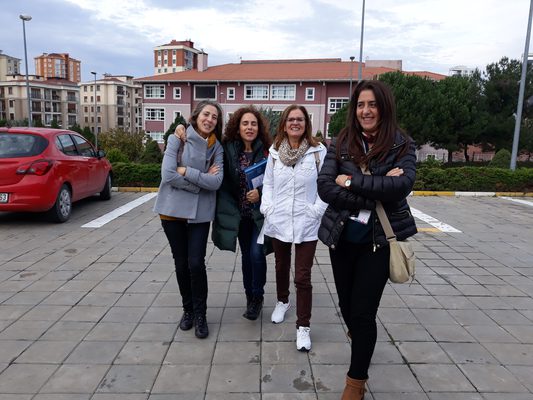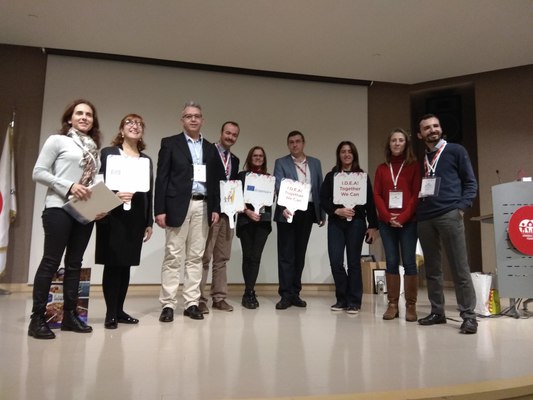The first impression was one of a different reality, namely an exclusive work space with children / adolescents with moderate to severe disabilities, by opposition to inclusive regular schools, like in the portuguese educational system.
However, after a more attentive observation, we must highlight the care and dedication in developing specific competences, in a structured environment, very well equipped and technologically updated. This last aspect caused undoubtedly the greatest impact on us. In all the presentations and visits that we participated, we found establishments with good physical conditions, adequate to the specificity of each student, taken care by specialized educators, technicians and assistants in sufficient number; we also perceive the concern in the creation of favorable learning environments, factors that are essential to success. Some schools, besides the cutting-edge technology, developed stimulating educational software for different purposes, regular diagnosis, assessment or evaluation of the students' learning process.
Sometimes the language presented itself as an obstacle to achieve a more profitable contact with some of the teachers, although we had the assistance of tireless staff members, namely the psychologist and coordinator of the exchange project.
Outside the institution, we point out the visit to a public school, whose main purpose seemed to be to train adolescents to practice crafts such as carpentry, arts, as well as skills related to personal autonomy and promoting transition to adulthood. Also within this scope, it was very interesting to observe a project of social insertion of adults with Trisomy 21 who, according to their profile, performed paid tasks in a restaurant, dealing directly with the clients, taking down requests, setting the tables, washing the dishes, etc. A social project that fosters employability, housing and emotional support.
It was also gratifying to have the opportunity to share and discuss, with partners and educational and social legal representatives, both formally and informally, aspects of each partner’s educational and teaching systems - which, at present, are shadowed by the increasing massification of tasks assigned to the teachers, a never ending story of problem solving such as inclusion.
Therefore, we consider that some of the observed strategies should be replicated and can foster new pedagogical practices towards success for all students. The intensive use of technologies as a motivating factor and even enhancer of more relaxing moments also aroused much of our attention.
Indeed, a very rewarding trip, not only because we were always very well hosted, in the various places that we visited, but also because it was clear that, as in Portugal, there is a social conscience, which aims at furthering the inclusion of all individuals, groups and communities and at the recognition of their capabilities, value and role as citizens, providing a fair and harmonious coexistence, believing that hereby is the way social progress is achieved.
Marta Antunes, school Erasmus+ coordinator



More information of LTT dissemination in Aver-O-Mar school